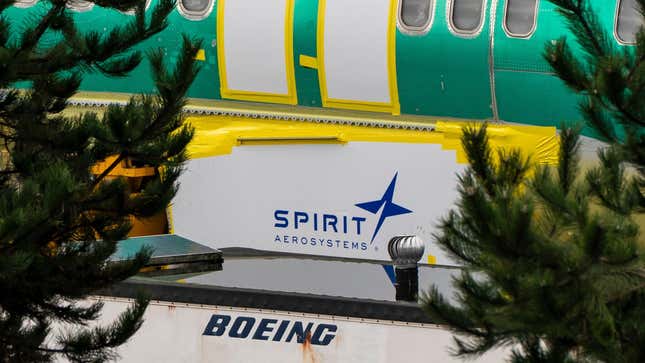
In This Story
Spirit AeroSystems, the supplier that crafted the Boeing 737 Max 9 fuselage that dropped a door plug mid-flight in January, has received far less scrutiny than its customer in the wake of the incident. But a new whistleblower’s allegations might change that.
Santiago Paredes told CBS News recently that he acquired the nickname “Showstopper” on the job because he would so frequently flag quality issues on the plane bodies that Spirit was putting together. But he believes he may have stopped a few too many shows, because he says the company drove him out of his job.
“If quality mattered, I would still be at Spirit,” he told CBS News. “It was very rare for us to look at a job and not find any defects.” He says that when higher-ups told him to flag fewer problems, he said doing so would be unethical. After that, he was removed from a leadership position. Though he was eventually reinstated, he left the company 2022. “I said it was just a matter of time before something bad happened.”
A Spirit representative told CBS News that it welcomes feedback from employees and says that they are protected from blowback when they give it.
An initial National Transportation Safety Board investigation into what happened with the door plug blowout suggested that the workers on the plane in question appear to have forgotten to replace four key bolts that would have held the piece in place. Crews had been fixing a defect that was allowed to leave Spirit’s Wichita, Kansas facility for Boeing’s Renton, Washington factory in the name of keeping up production speed.
The practice, known in-house as “traveled work,” is something that Boeing hopes to end. “We cannot travel any type of work that would disrupt their ability to start on day one,” Spirit CEO Patrick Shanahan told analysts on an earnings call this week. As part of a bid to increase quality, Boeing is in negotiations to acquire Spirit, which was a subsidiary until it was spun out in 2005.
“Working at Spirit, I almost grew a fear of flying,” Paredes told CBS. “Knowing what I know about the 737, it makes me very uncomfortable when I fly on one of them.”